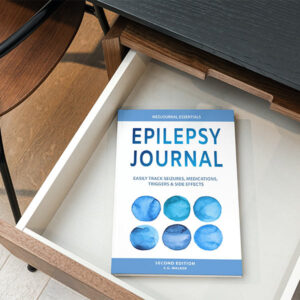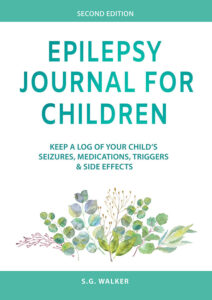Epilepsy Journal
Track Seizures, Medications, Triggers & Side Effects
Keeping a record of seizures is an important part of epilepsy management. This seizure diary makes it easy to record all the information you need to keep track of and share it with your doctor.
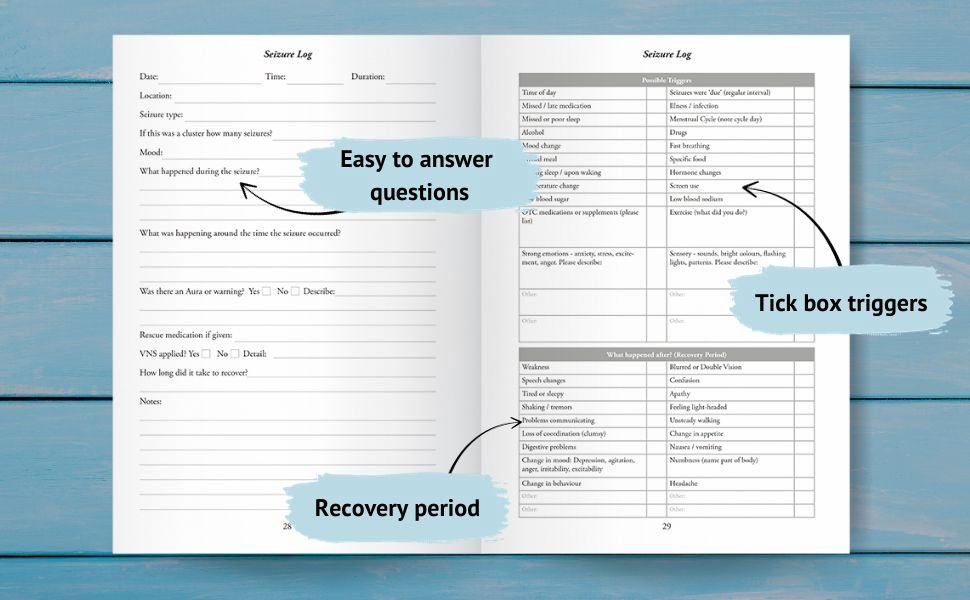
What's Inside
Year to View Calendar - Makes it easy to see frequency and note changes over time.
Medication History - Track your medications, dose changes and side effects.
Seizure Log – Record what happens before, during and after a seizure.
- Easy for family members or caregivers to update.
- Track patterns and frequency on the calendar pages.
- Keep a detailed history of medications, dose changes and side effects.
- Allows you to see if things stay the same, get better or get worse after medication changes.
- Look for triggers and warning signs.
- Track how medication and lifestyle changes impact your condition.
- Tick box format makes it quick and easy to record triggers.
- Written in plain English – easy for anyone to update and understand including those who may not be familiar with medical terminology.
- Undated so you can start any time.
- Calendar covers four years allowing plenty of space to add historical data if you choose.
- Section for questions to ask your doctor.
- Space for your notes and observations on the seizure log pages.
- Record any kind of seizure.
- Bring with you to consultations.
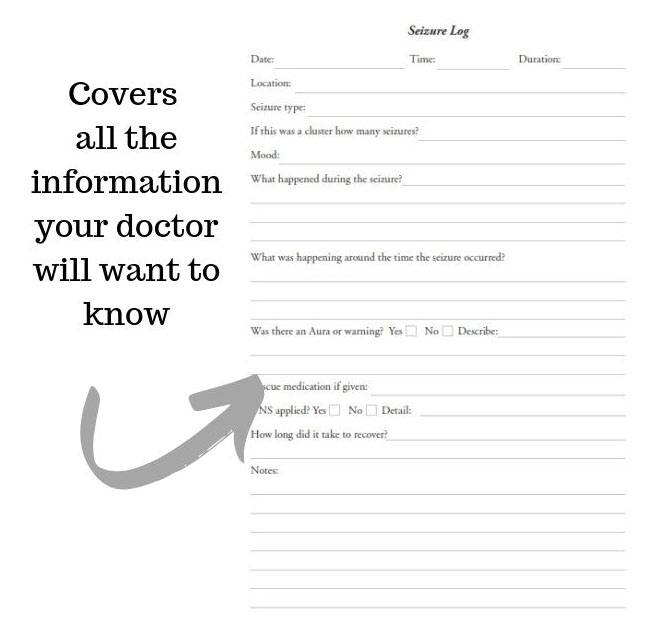
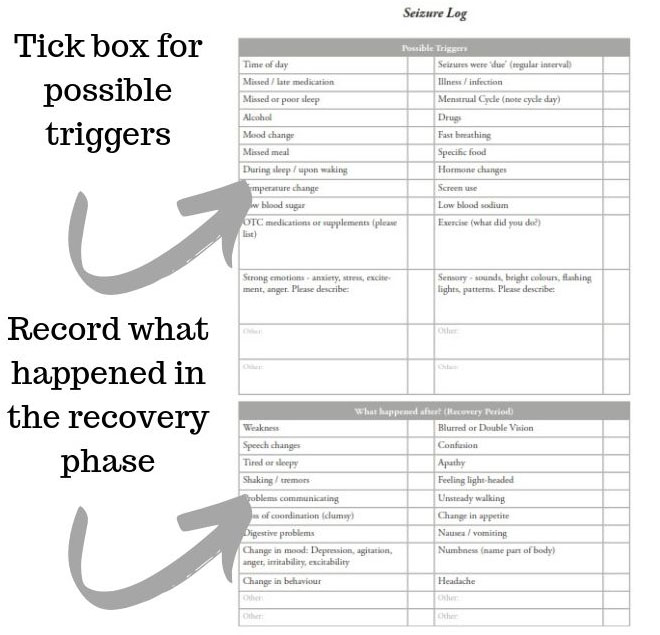
Why Is It Important to Keep a Seizure Log?
There are several important reasons for keeping a seizure diary – to aid in diagnosis, to help you and your doctor to make decisions about treatment, and to help you to spot patterns and triggers.
Diagnosis & Treatment Decisions
Writing down what happens before, during and after an epileptic seizure can help your doctor identify the type of seizures that you have. This is important because some medications are more effective for certain types of seizures. Keeping a record also helps you and your doctor decide whether medications are effective or need changing. If seizures get better, stay the same, or get worse after a medication change everyone needs to know. A log will also help you to track side effects from medications that you take. All this information helps you and your healthcare provider make informed decisions about treatment. This journal makes it easy to keep all your records together and to share them with your doctor or neurologist.
Patterns & Triggers
Noting the time, where you were and what was going on prior to a seizure may help you to spot patterns and identify potential triggers. Some common triggers are listed on the seizure record pages as tick box options, and there are spaces to record your own. There is also a notes section for your own observations and thoughts. Identifying triggers could help you find lifestyle changes that may help. Keeping records will also help you to see if lifestyle changes you introduce are making a difference.
Make record keeping one less thing to worry about by keeping all your information together in a journal specifically designed for epilepsy management.
You may also like
Epilepsy Journal - Children
Easily Track Your Child's Seizures, Medications, Triggers & Side Effects
Easy for family members, caregivers or schools to update the journal if needed, and it can be brought along to consultations with your child’s doctor.

